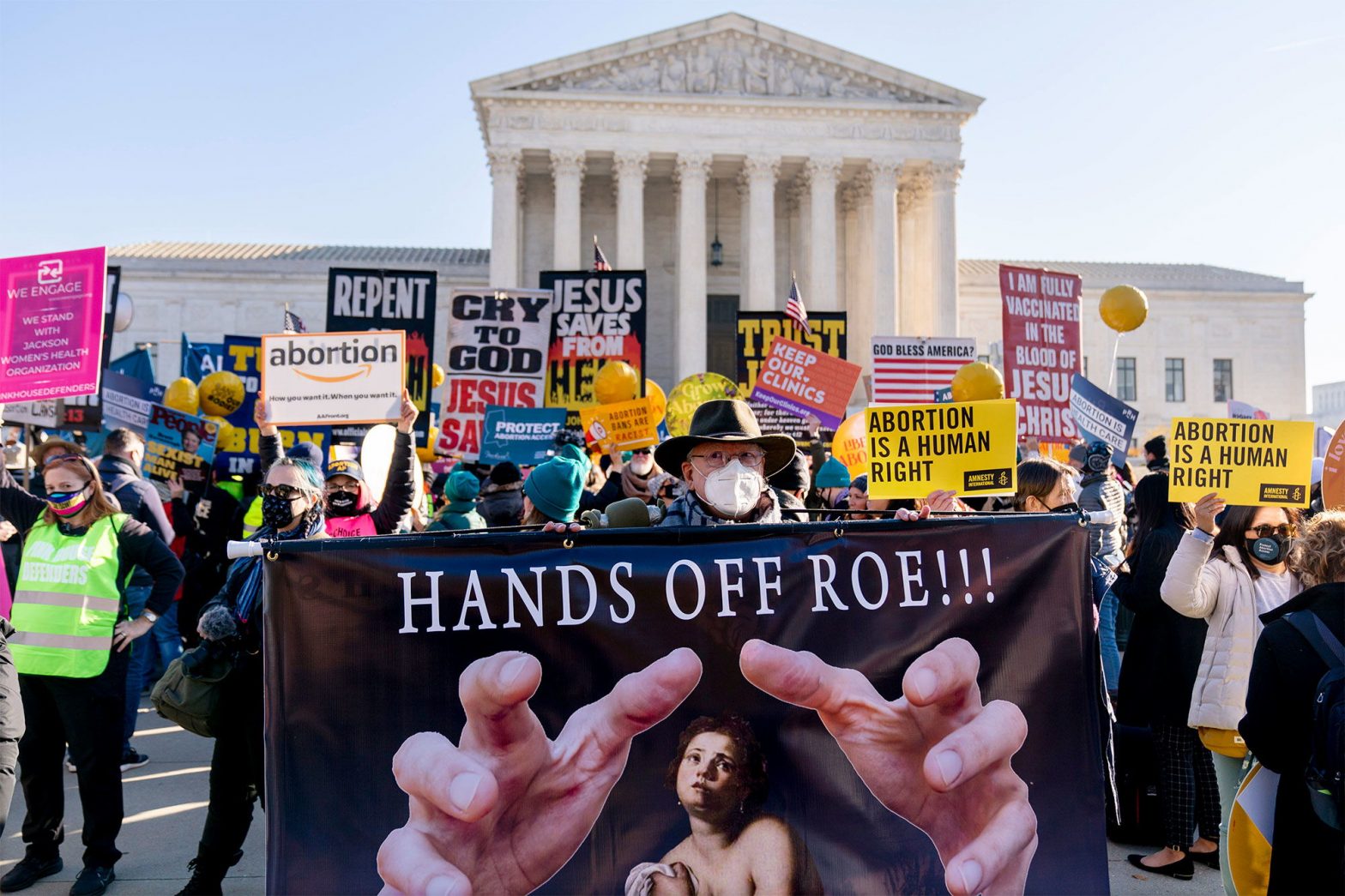A year on from the seismic Supreme Court overruling of Roe v. Wade, the fallout continues to reverberate through the American landscape, setting new rules and reshaping the political arena. One significant outcome has been the gradual erosion of abortion access in the American South. This region, historically diverse in its approach to reproductive rights, now faces a near-blanket prohibition, with few exceptions that provide precarious oases for abortion seekers.
Among the scant exceptions, Florida emerged as the most sought-after destination, reportedly serving 1,200 patients monthly in the post-Dobbs era. North Carolina and South Carolina also witnessed surges in abortion procedures, with approximately half of the patients in South Carolina coming from other states. However, the rising tide of legislative measures suggests these exceptions may soon cease to exist.
In North Carolina, despite a veto from the Democratic Governor, Republicans succeeded in passing a law limiting elective abortions to 12 weeks and prohibiting medication abortions after 10 weeks. Furthermore, a new stringent waiting period was introduced, posing added challenges for out-of-state abortion seekers.
In a recent development, South Carolina’s House has approved a legislation imposing a ban on abortions after six weeks, setting the stage for a potential clash in the state Senate. Previously, female lawmakers in the Senate successfully used a filibuster to block a similar bill. Meanwhile, in Florida, Governor Ron DeSantis, who is seen as a potential frontrunner for the 2024 GOP presidential nomination, signed a comparable six-week abortion ban into law. This controversial legislation is anticipated to be upheld by Florida’s conservative-leaning Supreme Court.

The diminished abortion access in the South now pushes individuals towards Virginia, where a 15-week ban is being pushed, or towards Washington, D.C. Given the prohibitive costs and logistical complexities associated with travel, the region, notorious for the nation’s worst maternal mortality rates, risks exacerbating an already precarious situation.
The emergence of the South as an anti-abortion stronghold was not inevitable. Initially, anti-abortion movements held sway in the East Coast and Midwest, with both Democrats and Republicans in power. Early anti-abortion narratives revolved around the fetus’ rights and the unconstitutionality of liberal abortion laws.
The anti-abortion movement’s alignment with the Republican Party in the late 1970s and early 1980s signaled a geographic and ideological shift. White evangelical Protestants, previously hesitant to join what they perceived as a Catholic movement, became more vocal and publicly involved in the 1980s, often under the influence of new religious right organizations like Concerned Women for America.
By the 1990s, a network of conservative Christian law firms mushroomed in the South, with organizations like the Alliance Defending Freedom providing substantial funding for anti-abortion litigation. Anti-abortion campaigns started to pivot towards framing the issue as a matter of faith, often advocating for severe punishments for perceived transgressions against unborn children.
The evolution of the anti-abortion movement, while multifaceted and diverse, is increasingly shaped by Southern influence. The consequences of this are acutely felt in the region as access to abortion diminishes. This shift carries profound implications, particularly as existing obstetrician shortages and high maternal mortality rates are set to worsen.
The future outlook for reproductive health in the South is grim. With declining OB-GYN residency applicants and physicians leaving the region, it presages a possible future shortage in doctors. Beyond political resistance, this exodus mirrors doctors’ reluctance to risk their freedom on vaguely written laws backed by severe penalties.
The harsh realities extend to child welfare outcomes. Eight out of the ten states ranked worst for children’s well-being are located in the South. This harsh reality is underscored by high child poverty rates and limited state support, such as Medicaid expansion, fair minimum wage, and paid family leave.
As the fight for reproductive rights persists, the Southern states have emerged as the epicenter of the anti-abortion movement in the United States. Despite ongoing efforts to protect and restore abortion rights through initiatives and judicial elections, the region, which proudly proclaims itself as pro-life, remains a formidable obstacle for women in need of reproductive healthcare. This reality calls for a profound reflection on the true essence of being “pro-life” in America, urging for a more empathetic and compassionate understanding of the complex issues surrounding women’s reproductive choices.
©world-news.biz
